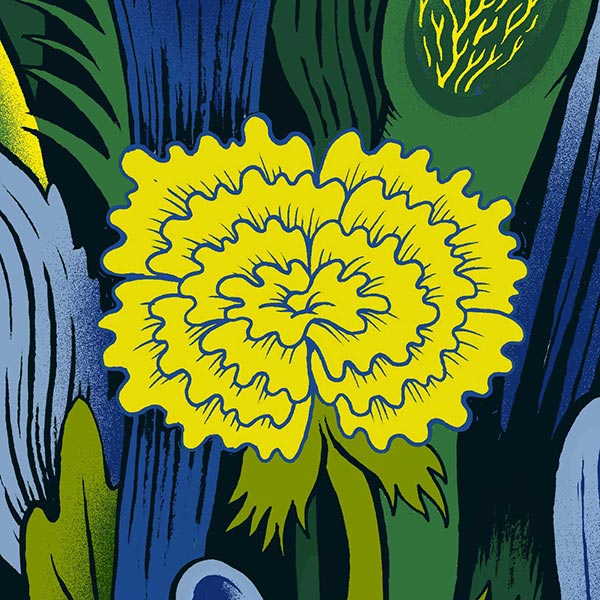In September last year a new issue of the 2+3D Design Magazine came out and inside it — we had written an article introducing the three Science Practice teams. 2+3D is the biggest design magazine in Poland. The article was titled ‘Wieloboje w projektowaniu’ which in English translates to ‘Combined Track and Field Events in Design’ — a reference to the very interdisciplinary nature of our work at Science Practice, where it is not uncommon to see designers and researchers working together with geneticists, developers, science writers, illustrators, agriculture experts, aeronautics engineers, filmmakers, policymakers, data scientists… In fact — each project we work on at Science Practice requires a unique blend of expertise.
New issue of 2+3D Design Mag came today and inside... a 4-spread article about our three teams https://t.co/d8vD5IGhdZ by @marekkultys pic.twitter.com/CbeNRkMQqx
— Science Practice (@sciencepractice) September 26, 2016
The word spread fast and not long after the publication of the article I received an invitation from the organisers of World Usability Day WUD Silesia to talk about our work at Science Practice at their conference in December 2016 in Katowice, Poland. I always enjoy such invitations, as they are usually a nice opportunity to look back at projects from a different perspective and see how they resonate with people. And because the team of the WUD Silesia conference was ‘Sustainable Development’, I immediately thought about our Good Problems team.
In 2016 most of our work in the Good Problems team was focused on problems in the humanitarian emergency sector (namely, the WASH and GBV projects). Humanitarian aid is often defined in contrast to development work. Humanitarian actions are usually seen as short-term interventions (days, weeks or months) focused on the needs of people directly affected by a crisis. While the need to integrate sustainable principles in humanitarian aid is part of a growing trend in the sector, I realised that we had another project in our portfolio that was strongly rooted in the sustainable development context – this was the Longitude Prize 2014.
Sustainability and the Longitude Prize
The Our Common Future report completed by the World Commission on Environment and Development in 1987 defines sustainable development as:
Sustainable development is development that meets the needs of the present without compromising the ability of future generations to meet their own needs.
Central to sustainable development are two concepts:
-
the concept of needs;
-
the concept of limitations.
As we developed prototype challenges for each of the six candidate topics for the Longitude Prize 2014 (Antibiotics, Dementia, Flight, Food, Paralysis, and Water), it became increasingly apparent that most of these problems stem from our inability to sustain a technology or a service that we already enjoy into the longer future. Simply speaking — our current situation is unsustainable and unless we come up with something really good, we won’t be able to enjoy those technologies and services for much longer.
The Antibiotics candidate provides an illustrative example. Here, the problem we are facing in terms of sustainable development can be phrased in this way:
How do we keep the benefits of using antibiotics today, and not risk future generations’ right to benefit from using antibiotics in the future as well?
With this phrasing the concepts of needs and limitations can now be clearly defined:
-
our need is to be able to use antibiotics effectively;
-
future generations’ need is to be able to use antibiotics effectively in the future;
-
one limitation is that the more liberally we use antibiotics, the less effective they become (due to evolving microbial resistance);
-
another limitation is that the development of new antibiotics becomes ever more difficult and expensive, as it takes ever less time for bacteria to develop resistance to a new drug.

Longitude Prize 2014: Antibiotics infographic. Key things you need to know about the importance of the problem of rising antimicrobial resistance. Presented data put the needs and the limitations into a quantifiable perspective.
In June 2014 BBC announced that Antibiotics had been selected by the British public to be the final topic of the Longitude Prize 2014. In conclusion of over 6 months of our research and design work for the Longitude Prize, we proposed that the Antibiotics prize should focus on improving antibiotic conservation through better stewardship of the existing antibiotic treatments. This in practice could be enabled by a new point-of-care diagnostic that should help clinicians target antibiotic treatments more effectively. The challenge statement in the Longitude Prize rule book reads:
The Longitude Prize will reward a competitor that can develop a transformative point–of–care diagnostic test that will conserve antibiotics for future generations and revolutionise the delivery of global healthcare. The test must be accurate, rapid, affordable, easy–to–use and available to anyone, anywhere in the world. It will identify when antibiotics are needed and, if they are, which ones to use.
The competition is still running.
Interestingly, other candidates that did not become the topic of the main Longitude Prize 2014 competition were also rooted in long-term sustainability context. The goal of the Dementia challenge was to address the challenge of caring for a growing ageing population while relying on finite human and financial resources. The Food challenge was focusing on the need to produce more food to feed a growing population on one hand, and on the limitations of agriculture’s growing environmental impact on the other. The Flight challenge was looking for a breakthrough that would balance our need for a rapid and convenient means of global transportation with the limitations posed by environmental impact of aviation’s CO2 emissions.
To feed the future, we need to make changes today - vote #food for #longitudeprize: http://t.co/O2bXDYkMiy pic.twitter.com/c6E2VQbG2R
— Longitude Prize (@longitude_prize) June 11, 2014
5.7 billion journeys a year - #flight may be vital to our economy, but how do we make it sustainable? #longitudeprize pic.twitter.com/aH31p0m3lg
— Longitude Prize (@longitude_prize) June 18, 2014

